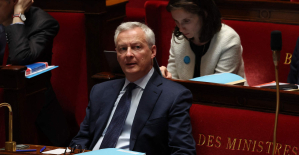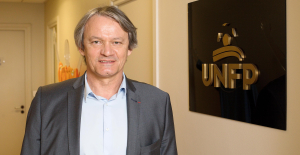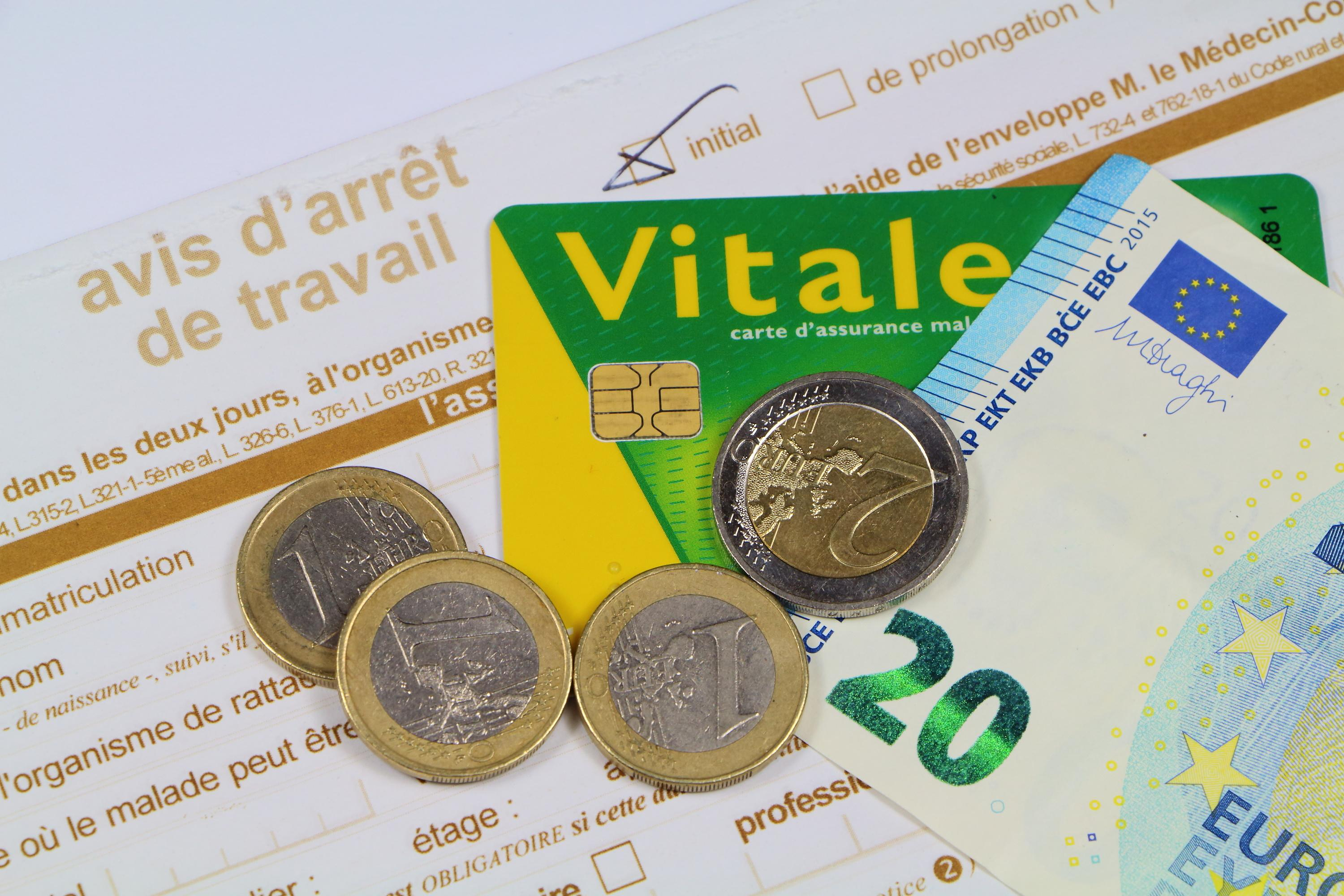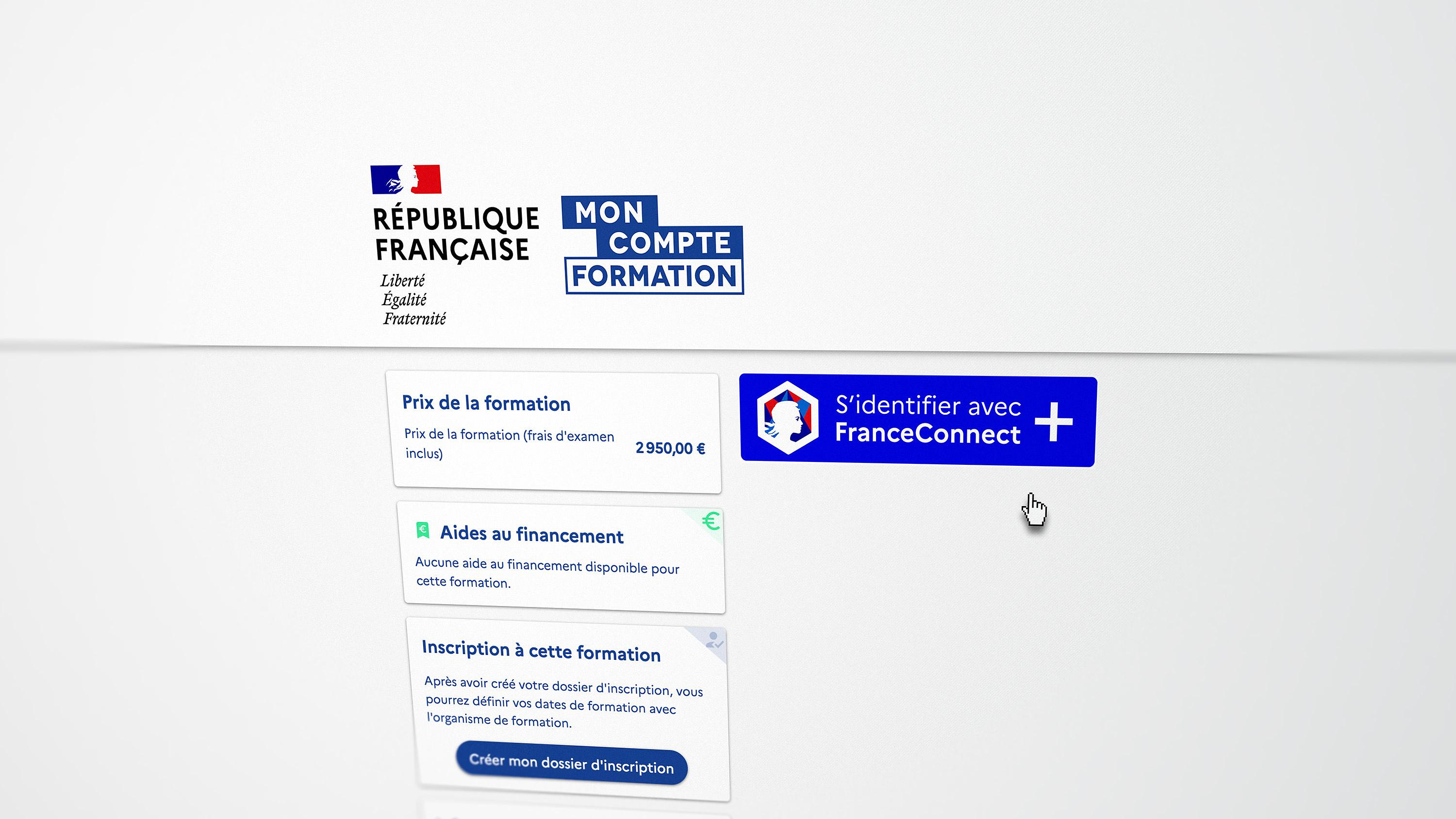The message from Andrea Kocsis these days is clear: "Now it's your turn before we talk about dividends," the deputy head of the Ver.di service union called out to postal workers a few days ago. Your demand for 15 percent more wages in the postal group is "necessary, fair and feasible". The Post will probably generate the highest profit of all time for the past year. "We're going to get your share of that now," said the native of the Rhineland. Post employees had traveled to Berlin's Ostbahnhof from several federal states. The union has its national headquarters just around the corner. The words could still be heard there, too.
Andrea Kocsis is Deputy Federal Chairwoman of Ver.di and Head of the Federal Department of Postal Services, Freight Forwarders and Logistics. Since 2007, she has been the negotiator in every collective bargaining round at Swiss Post. She has also been Deputy Chairwoman of the Supervisory Board of Deutsche Post AG since .
But now the situation is different than usual at the post office. In the current collective bargaining, it could be only the second time in this millennium to an indefinite strike. However, from the union's point of view, there is a great risk that the 160,000 employees will not be willing to work out or that the result will not be significantly better in the end. There is also a lot at stake for the personal future of the union leader Kocsis.
Because the collective bargaining round is also a test for the negotiator from Ver.di. After all, elections for union representatives to the Supervisory Board of Deutsche Post AG are due in the spring. Kocsis is deputy chairman of the supervisory board and wants to become one again. After that, the heads of the federal departments will be re-elected at Ver.di. Here, too, Kocsis would like to keep her post. Finally, in September, the federal congress meets in Berlin and elects a new union executive. It is very likely that Kocsis will compete again. In her last election in Leipzig in 2019, the self-confident Kocsis received almost 92 percent of the votes. That's what she'll be measured against this year.
At that time, Frank Werneke replaced Frank Bsirske as the head of the union. There had been signs beforehand that Kocsis would also have wanted to run for office. "I've always had mentors in my trade union work, and last but not least, my career in the organization was a result of the women's quota," she once said in an interview with the Hans Böckler Foundation, which belongs to the German Federation of Trade Unions. Apparently, there were not enough mentors working in the background for her in 2019.
Now it is up to Kocsis to emerge as the winner of the collective bargaining dispute. After three rounds of negotiations in January and February, the negotiator broke off the collective bargaining talks. Her counterpart in the negotiations was Post board member Thomas Ogilvie. The 46-year-old psychologist and economist is said to have been very surprised by the decision. Because on the evening of the negotiations in Düsseldorf, the signs are said to have gone in the direction of an understanding.
If there is now a strike after a successful ballot, it will be the first strike since 2015. Before that, there had been no indefinite full strike in the company for two decades. Ver.di demands that 15 percent wage increase with a contract period of twelve months. Swiss Post is prepared to increase wages by an average of 11.5 percent.
The lower wage groups should benefit disproportionately with around 20 percent. Part of the offer is also the net payment of 3000 euros for each employee as inflation compensation. The smaller trade union DPVKOM speaks of the best employer offer for many years. Although she is still demanding improvements, DPVKOM rejects a ballot and a full strike.
In the collective bargaining dispute at Deutsche Post, the fronts remain hardened. On Monday, the Verdi union began a ballot that will run until March 8 to decide on an indefinite strike. A labor dispute is likely to have significant consequences for letter and parcel shipping.
Source: WORLD
After the full strike in 2015 at the post office, which lasted for five weeks and led to mountains of millions of undelivered letters and parcels, Ver.di finally had to back down. "It was not possible to convince Deutsche Post AG to take back DHL Delivery GmbH," was the thin sentence read in the union's statement at the time.
At the time, Ver.di wanted to prevent the establishment and expansion of a low-cost subsidiary with worse working conditions. The postal group had around 6,000 employees at delivery companies deliver parcels and paid them instead of the house rate with the 20 percent lower collective agreement of the logistics industry. Post board member Melanie Kreis, who was responsible for human resources at the time and is now responsible for finances, prevailed against Kocsis. The Post only stopped the delivery companies in 2019.
It could have turned out very differently. If it had been up to her subjects, the music lover Kocsis would have been in a completely different professional environment. After graduating from high school in Mülheim an der Ruhr, she first studied social work at the University of Essen and then Romance, English and German in Duisburg. During this time she worked as a mail carrier at the post office.
Immediately after completing her studies, she started working for the company, initially working in delivery, getting involved in the German postal union and becoming a full-time works council member in 1996. Shortly thereafter, the in-house union at the post office merged into Ver.di. Kocsis quickly became head of the postal services, freight forwarding and logistics department in North Rhine-Westphalia.
Kocsis is married, her husband brought two sons into the relationship. She shares her enthusiasm for playing the guitar with her older son. She plays the instrument herself, enjoys going to concerts and listening to a variety of music genres. Artists like the violinist Daniel Hope, the singer Jamie Cullum or the band Red Hot Chili Peppers are among them. The jazz trumpeter Till Brönner occasionally fits into her mood, as she once said.
Politically, her voice is rarely noticed. Kocsis is not a party member, which is rather atypical on the Ver.di board. For example, the long-time chairman Bsirske has had a party membership from Bündnis 90/Die Grünen for decades and is now a member of the Bundestag faction. The current Ver.di boss Werneke, in turn, is a member of the SPD. When asked about it, Kocsis said: "It hasn't harmed me yet". For example, if it concerns socio-political issues and the union, there are always other Ver.di officials in the news. Kocsis herself confines herself to her technical trade union issues.
"Everything on shares" is the daily stock exchange shot from the WELT business editorial team. Every morning from 7 a.m. with our financial journalists. For stock market experts and beginners. Subscribe to the podcast on Spotify, Apple Podcast, Amazon Music and Deezer. Or directly via RSS feed.

 Russia: schools will train children to use drones at the start of the school year
Russia: schools will train children to use drones at the start of the school year Austria: incestuous torturer Josef Fritzl, nicknamed the “national monster”, could soon be released
Austria: incestuous torturer Josef Fritzl, nicknamed the “national monster”, could soon be released An airline continues to treat a centenarian as a one-year-old baby
An airline continues to treat a centenarian as a one-year-old baby Germany: the trial of nine “Citizens of the Reich” conspirators begins this Monday
Germany: the trial of nine “Citizens of the Reich” conspirators begins this Monday Sánchez cancels his agenda and considers resigning: "I need to stop and reflect"
Sánchez cancels his agenda and considers resigning: "I need to stop and reflect" The Federal Committee of the PSOE interrupts the event to take to the streets with the militants
The Federal Committee of the PSOE interrupts the event to take to the streets with the militants Repsol: "We want to lead generative AI to guarantee its benefits and avoid risks"
Repsol: "We want to lead generative AI to guarantee its benefits and avoid risks" Osteoarthritis: an innovation to improve its management
Osteoarthritis: an innovation to improve its management Sanofi: demonstration in front of Paris headquarters against job cuts
Sanofi: demonstration in front of Paris headquarters against job cuts The Chinese car manufacturer BYD sets out to conquer France
The Chinese car manufacturer BYD sets out to conquer France Public finances: after the deputies, Bruno Le Maire asks the senators for savings avenues
Public finances: after the deputies, Bruno Le Maire asks the senators for savings avenues Faced with opposition from London, a fund supported by Abu Dhabi abandons the purchase of the Daily Telegraph
Faced with opposition from London, a fund supported by Abu Dhabi abandons the purchase of the Daily Telegraph Omar Sy on all cultural fronts
Omar Sy on all cultural fronts Jacques Audiard, Swann Arlaud, Benjamin Stora... A hundred men from cinema, theater and books in support of
Jacques Audiard, Swann Arlaud, Benjamin Stora... A hundred men from cinema, theater and books in support of Resale, scams and fake tickets: how not to get scammed before Taylor Swift concerts
Resale, scams and fake tickets: how not to get scammed before Taylor Swift concerts Isild Le Besco is not ready to file a complaint against Benoît Jacquot
Isild Le Besco is not ready to file a complaint against Benoît Jacquot Omoda 7, another Chinese car that could be manufactured in Spain
Omoda 7, another Chinese car that could be manufactured in Spain BYD chooses CA Auto Bank as financial partner in Spain
BYD chooses CA Auto Bank as financial partner in Spain Tesla and Baidu sign key agreement to boost development of autonomous driving
Tesla and Baidu sign key agreement to boost development of autonomous driving Skoda Kodiaq 2024: a 'beast' plug-in hybrid SUV
Skoda Kodiaq 2024: a 'beast' plug-in hybrid SUV The home mortgage firm rises 3.8% in February and the average interest moderates to 3.33%
The home mortgage firm rises 3.8% in February and the average interest moderates to 3.33% This is how housing prices have changed in Spain in the last decade
This is how housing prices have changed in Spain in the last decade The home mortgage firm drops 10% in January and interest soars to 3.46%
The home mortgage firm drops 10% in January and interest soars to 3.46% The jewel of the Rocío de Nagüeles urbanization: a dream villa in Marbella
The jewel of the Rocío de Nagüeles urbanization: a dream villa in Marbella Europeans: a senior official on the National Rally list
Europeans: a senior official on the National Rally list Blockade of Sciences Po: the right denounces a “drift”, the government charges the rebels
Blockade of Sciences Po: the right denounces a “drift”, the government charges the rebels Even on a mission for NATO, the Charles-de-Gaulle remains under French control, Lecornu responds to Mélenchon
Even on a mission for NATO, the Charles-de-Gaulle remains under French control, Lecornu responds to Mélenchon “Deadly Europe”, “economic decline”, immigration… What to remember from Emmanuel Macron’s speech at the Sorbonne
“Deadly Europe”, “economic decline”, immigration… What to remember from Emmanuel Macron’s speech at the Sorbonne These French cities that will boycott the World Cup in Qatar
These French cities that will boycott the World Cup in Qatar Bayern Munich-Real Madrid: in video, all the goals from the C1 clash
Bayern Munich-Real Madrid: in video, all the goals from the C1 clash Ligue 1: Zaire-Emery, Yoro, Roy, Griezmann... The others nominated for the UNFP Trophies
Ligue 1: Zaire-Emery, Yoro, Roy, Griezmann... The others nominated for the UNFP Trophies Bayern Munich-Real Madrid: in video, the magnificent tifo in tribute to Franz Beckenbauer
Bayern Munich-Real Madrid: in video, the magnificent tifo in tribute to Franz Beckenbauer Ayrton Senna: 30 anecdotes that you (perhaps) don't know about the Brazilian who died thirty years ago
Ayrton Senna: 30 anecdotes that you (perhaps) don't know about the Brazilian who died thirty years ago
















